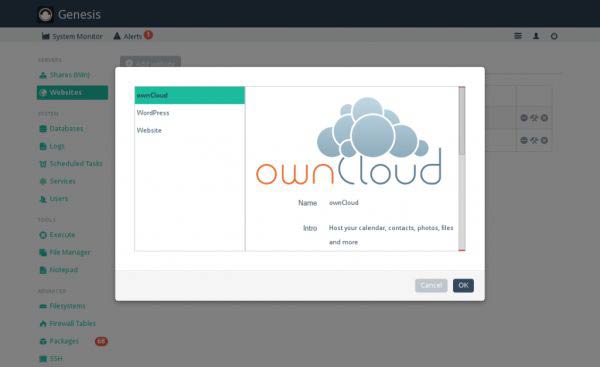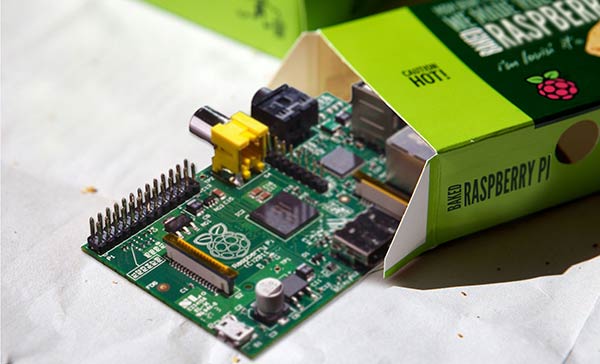arkOS, a personal cloud storage project, has surpassed its funding goal of $45,000 with six days left in its campaign. arkOS is an open-source platform which the developers describe as “the future of the self-hosted web”. It will help users take control over their own data without need of external cloud providers or special proprietary hardware. The system is designed to run on the cheap and cheerful Raspberry Pi computer, just install it to an SD card via your PC and boot the RasPi and configure using a graphical interface called Genesis, with “no need to touch the command line”.
arcOS is “designed to cut out the middle man” and therefore offer users enhanced privacy and control over their data. Like other home-cloud solutions, users of arcOS will have a server at home hosting services such as email, file hosting, video streaming, websites and more. However arcOS’s system does away with any proprietary hardware and makes use of the popular credit card sized Raspberry Pi. The software is shovelled from your PC to an SD card and fed to the RasPi. Then after plugging the RasPi into your router and following a “fast, easy and intuitive” configuration using a graphical interface cloud services are added to your setup by selecting software ‘plug-ins’.

Google software cull prompted arcOS development
The founder of the arcOS project, Jacob Cook, decided to start the project after Google killed of its Reader (RSS) service, reports Venture Beat. “Google, while it is a great service that has done wonderful things for the Web, is showing some troubling signs,” Cook told VentureBeat. “Their shutdown of Google Reader earlier this year means that none of the services [we] rely upon are sacrosanct if they are not profitable enough for them.”

The funding for this project was sought as work takes an increasing amount of the developer’s time and that time is crucial for success as the project grows. The $45,000 funding covers one full year of full-time development and investments to support the project. It is felt that after this time and a moderate take-up by computer enthusiasts the project can sustain itself with a combination of donations and helping users with self-hosting.













